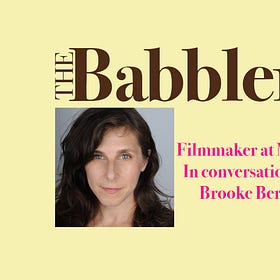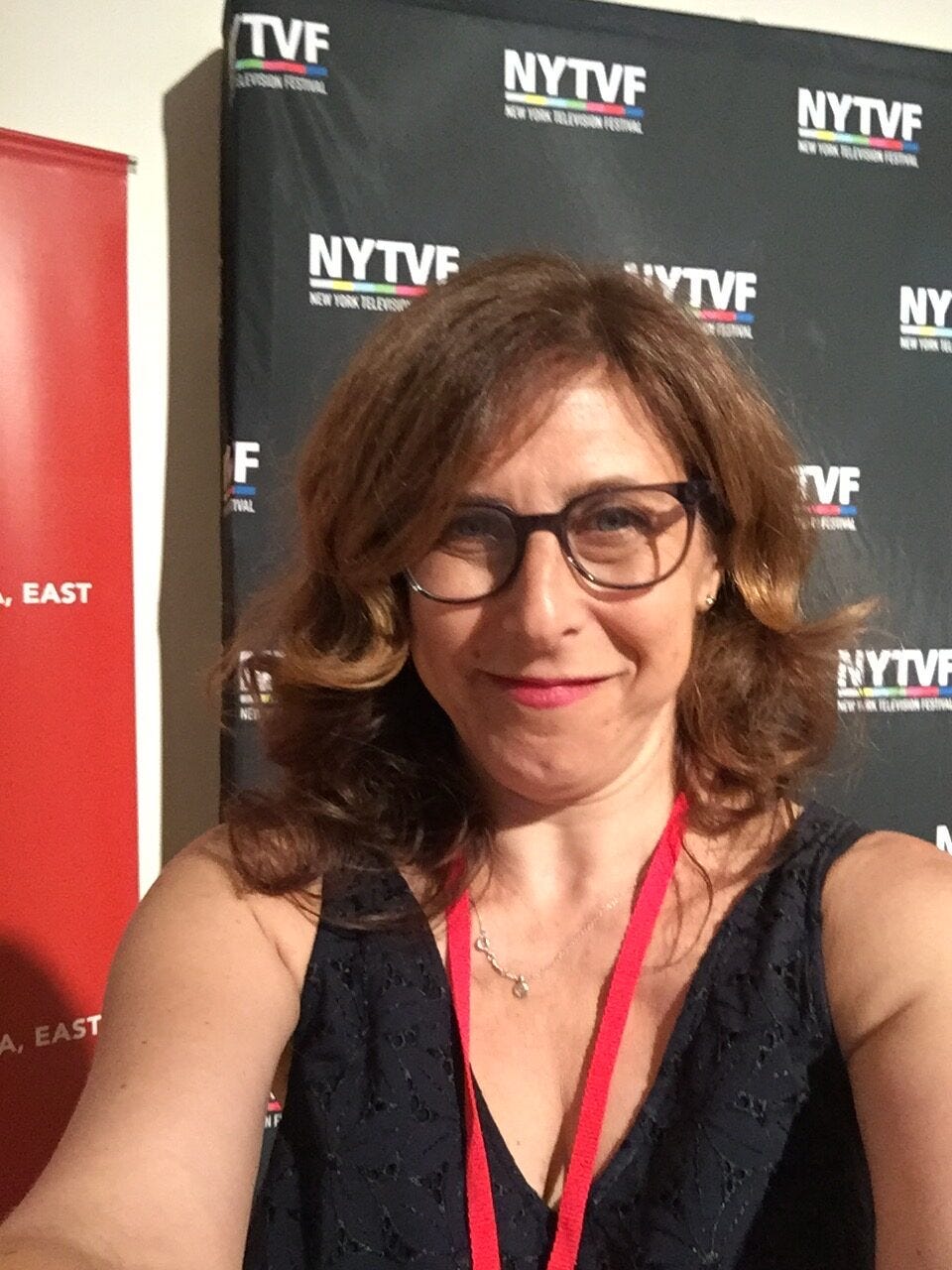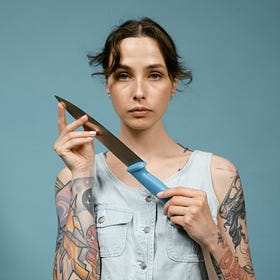I’m working on the next episode of The Babblery, coming out next week, which features first-time film director Brooke Berman. Her film, Ramona at Midlife, is a film about middle-aged women made by middle-aged women, and it’s a refreshing change for women looking for deeper explorations of our lives.1
One of my favorite segments of the interview is when I start gushing about how much I love the men in her film, and Brooke’s laughter just bubbles up. I can tell she loves them, too.
Suki Wessling: I noticed something I thought really special about your film that your male characters, even the one set up to be the villain, are just, they're lovely! They're imperfect, they don't necessarily always do the right thing, they aren't necessarily what the women in their lives need them to be, but they're guys that I—I like.
Brooke Berman: I love all three of those men, and I guess I don't have a particularly damning experience of men in general. I think you can tell women's stories without demonizing men.
EPISODE RELEASE: "Filmmaker at Midlife"
For an entire career, Brooke Berman has trusted her stories to other directors and producers. But when she birthed Ramona at Midlife, she knew that the only director she could trust was herself. The result is a film that, as Brooke says, “is conversation with the inner logic” of the story.
“You can tell women’s stories without demonizing men”
In a weird way, that statement is radical. So many of the lauded films that feature women in lead roles, for example, also feature the men who abuse them. Sometimes I get a sense of ‘abuse porn’ from these films, that the abuse is the point, that the filmmakers are most fascinated with the abuser and the woman ends up little more than a prop.
A lot of my conversation with Brooke centered around how hard it is, in the words of a previous Babblery guest, Brenda Laurel, “to do the good thing.” Brooke explains that writing a mainstream Hollywood film has become “a math problem.” She’s referring to a popular plot style, but when you live in a patriarchal society where a lot of women are, literally, being abused by men, it’s very easy to do the math and promote that storyline as inevitable in your film.
“That is why all of our movies feel the same,” Brooke explains. “They're all being made according to a certain structural formula that that isn't always in conversation with the inner logic of the movie.”
Thanks for reading The Babblery! This post is public so feel free to share it.
The inner logic of a director who knows her story
Ramona at Midlife is about a woman who needs to own up to herself. Brooke says, “The men are not the problem. The marriage is not the problem. The filmmaker [that Ramona is in conflict with] is not the problem. The problem is inside of her and she, to her credit, figures that out.”
As a filmmaker, Brooke decided that this was not a story she wanted someone else to tell, so this indie film is all hers, from the writing to the location scouting and even hiring the caterer. When we talked about what might have happened if she’d gone to Hollywood with the script, she pointed out that the storyline was ripe for a full-on revenge scene. As soon as Brooke sketched it out, I could see it: in Hollywood, we’d go from troubled writer to murderous antiheroine, Save the Cat-style.2
Instead, when Ramona confronts her nemesis, she finally realizes that her nemesis is herself. It’s a much better film, a much braver film, and Brooke’s team didn’t have to invest in any strawberry syrup.
What’s with the knife?
It refers to my musings about a proverb from Lesotho: “Woman holds the knife on the sharp side.” My conclusion: comfortable handles on our tools are a luxury not afforded to everyone.
When Hollywood won’t give a woman filmmaker the tool she needs to tell her story, she’s going to grab the tools she can get, never mind the discomfort. Thank goodness that there are women out there doing the hard work to tell our inner stories and explore our real lives.
It’s quiet in here… When you ‘love’ this post, restack (share) it, or leave a comment, The Babblery will reach more readers. By email, click on the heart at the bottom or top of this post. In the app or on the site, click the heart or the restack icon. Thanks for your support!
Find it on Apple TV or Prime. I would recommend it even if I hadn’t interviewed her!
Another part of our conversation broaches the subject of the sameness of Hollywood films and the popularity of a script-writing method called Save the Cat. Stay tuned for Brooke’s thoughts on that!








